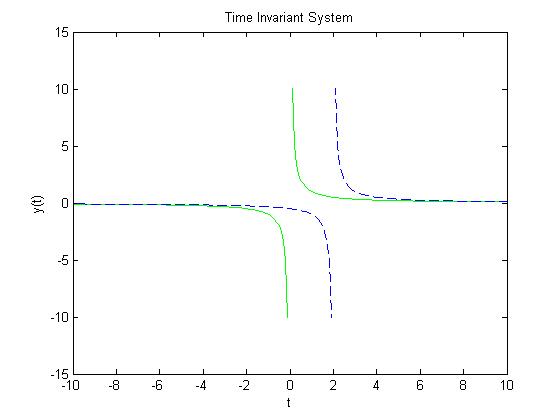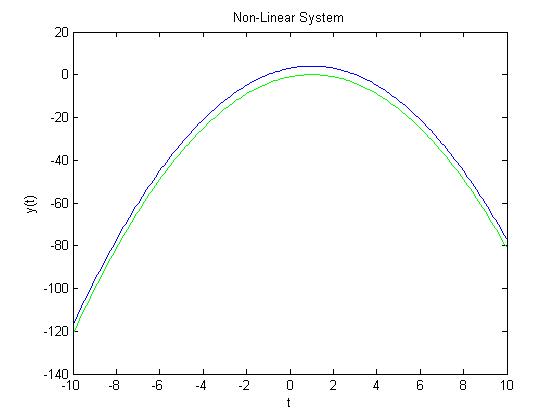Part D: Time Invariance
When a system is time invariant, any time shifting on the input signal will result in the same shifting of the output signal.
In other words (pictures),
implies
Example of a Time-Invariant System
An example of a time-invariant system is $ x(t) = \frac{1}{t} $.
As you can see from the graph, $ y $2$ (t) $ (the blue dotted graph) is the same graph of </math>1$ (t) $ (the green graph), but shifted to the right by $ t $0$ =2 $.

Example of a System That Is Not Time-Invariant
An example of a system that is not time-invariant would be $ x(t) = (1-t)*(t-1) $.
The graph below shows that the resulting signal is not a shifted input signal.




